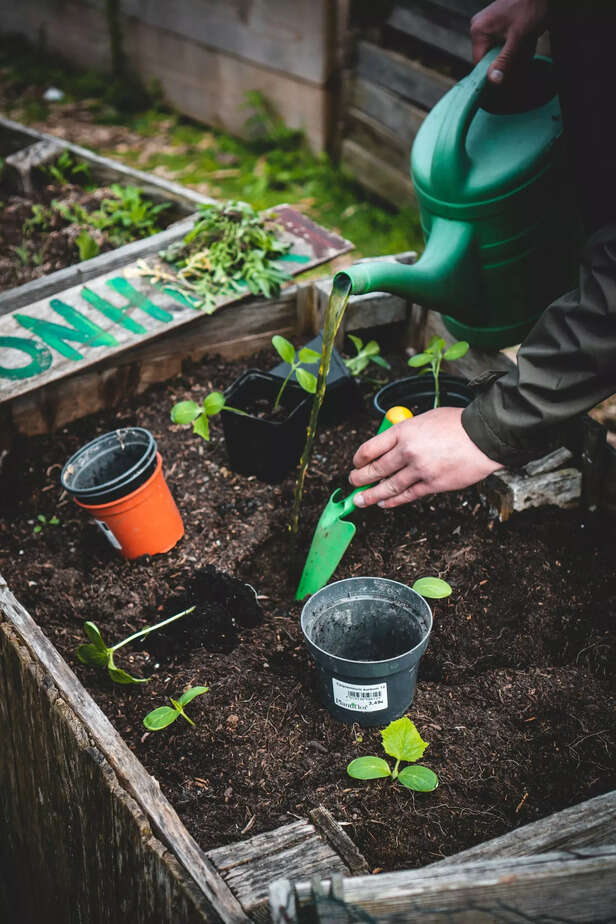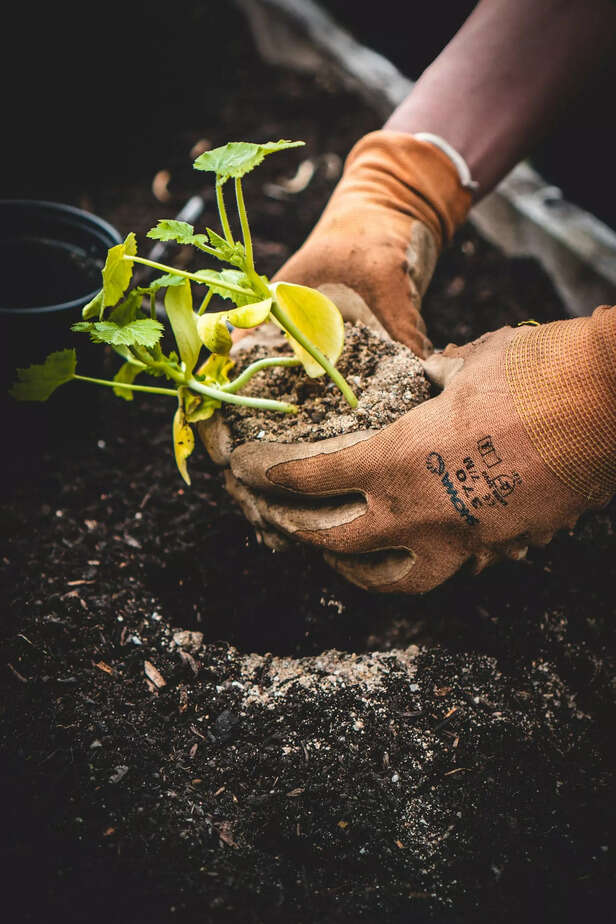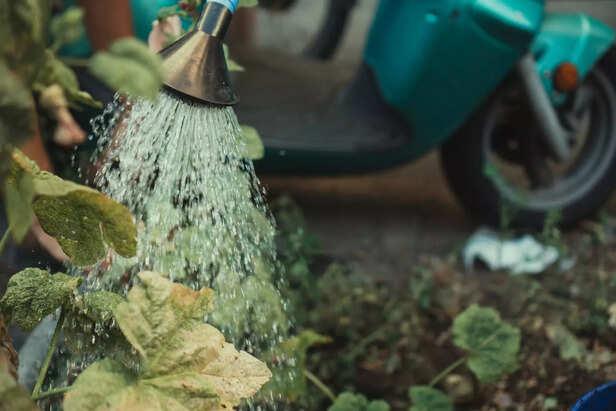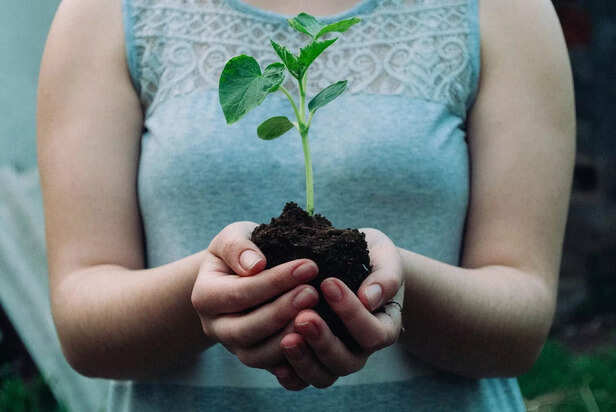Ditch the Chemicals, Embrace the Soil
The secret to a healthy, thriving organic garden starts underground. Rich, living soil is your greatest ally when you’re gardening without chemicals. Synthetic fertilizers may look like a quick fix but they strip the soil of its natural nutrients over time. By feeding your soil with organic matter, compost, aged manure, or natural mulch, you create a thriving ecosystem where plants grow strong and resilient. A healthy soil web means fewer pests, better water retention, and tastier harvests. Test your soil now and then, and keep adding organic matter to keep it alive and well.
Compost: Nature’s Black Gold
If you’re growing organically, compost is your best friend. Composting kitchen scraps, dried leaves, and garden clippings transforms waste into nutrient-rich soil food. This “black gold” helps plants grow lush and strong without any need for store-bought chemical fertilisers. Setting up a simple compost bin in your backyard or even on your balcony doesn’t take much, just keep adding your vegetable peels, coffee grounds, and garden trimmings. Give it a turn every now and then, and soon you’ll have crumbly compost that your garden will love.
Gardening
( Image credit : Unsplash )
Pest Patrol, the Natural Way
No gardener wants to see their hard work destroyed by pests, but dousing your plants in harsh chemicals isn’t the answer. Organic pest control is all about working with nature, not against it. Many herbs and flowers naturally repel bugs, think marigolds near your tomatoes or basil by your peppers. Simple homemade sprays, like diluted neem oil or soapy water, can tackle common pests safely. And the best helpers of all? Ladybugs and lacewings, these tiny garden warriors feast on harmful insects so you don’t have to reach for poison.
Companion Planting: Matchmaking for Plants
Nature has its own ways of keeping things balanced, and companion planting is a brilliant example. Certain plants grow better together, helping each other stay strong and pest-free. For instance, basil loves to grow next to tomatoes, not only does it taste great in the same dish, but it helps repel aphids and hornworms. Onions planted near carrots help keep carrot flies away. And the famous “Three Sisters” corn, beans, and squash, are a classic example of plants supporting each other’s growth in perfect harmony. A little thoughtful pairing goes a long way toward a naturally healthy garden.
Plants
( Image credit : Unsplash )
Homegrown Fertilisers You Can Make Tonight
Who says you need expensive chemical fertilisers when your kitchen is already full of organic boosters? Banana peels add a natural dose of potassium, crushed eggshells bring calcium to the soil, and even the water you wash your rice in can give plants a helpful nutrient kick. Many gardeners swear by compost tea, a simple liquid made by steeping finished compost in water for a few days. Poured around the base of your plants, this “tea” nourishes roots and strengthens growth, all without adding a single chemical.
Mulch is an organic gardener’s quiet hero. A thick layer of mulch, straw, dry leaves, or grass clippings, keeps the soil moist, blocks weeds from sprouting, and adds nutrients as it breaks down. It also protects your soil from harsh sun and heavy rain, giving your plants a stable environment to thrive. Just remember to keep the mulch a little away from the stems to avoid rot, and watch your garden stay healthy and low-maintenance all season long.
Healthy plants need water, but watering the wrong way can do more harm than good. Instead of frequent shallow watering, aim for deep, occasional watering that encourages roots to grow stronger and deeper. Collecting rainwater is another great practice, it’s free, eco-friendly, and better for your plants than chemically treated tap water. The best times to water are early morning or late evening when the sun is softer, which helps the soil soak up every drop without wasting a precious resource.
Watering Plants
( Image credit : Unsplash )
It’s easy to think of bugs as the enemy, but in an organic garden, many insects are your greatest allies. Bees and butterflies help pollinate your plants, ensuring bountiful harvests, while ladybugs and praying mantises snack on pests like aphids and mites. To welcome these helpful guests, plant pollinator-friendly flowers like sunflowers, calendula, or lavender. A garden buzzing with good bugs is a sign that your backyard ecosystem is healthy and thriving without harmful chemicals.
Grow What You Love to Eat
It’s tempting to plant every pretty seed packet you find, but the happiest organic gardens are the ones filled with foods you truly enjoy. Start with a few easy vegetables or herbs you know you’ll use in your kitchen, maybe crisp lettuce, juicy tomatoes, or fragrant basil. Watching familiar ingredients grow under your care makes home-cooked meals taste even better. Plus, starting small keeps your garden manageable and stress-free, so you’re more likely to stick with it season after season.
The beauty of organic gardening is that it’s not just about what you grow, it’s about how you grow it. Reuse old containers, recycle garden waste, share extra produce with neighbours, and choose local seeds when you can. Every small choice makes your garden more eco-friendly and your footprint lighter. Organic gardening is a journey of learning and growing with the seasons, so be patient, stay curious, and celebrate each harvest along the way.
Sustainable Planting
( Image credit : Unsplash )
Growing your own chemical-free garden isn’t just about fresh food, it’s about reconnecting with nature, protecting your family’s health, and doing your part for the planet. From healthy soil to helpful bugs and clever plant pairings, each small step builds a garden that’s safe, delicious, and truly alive. So roll up your sleeves, plant those seeds, and start your own organic paradise: one compost heap, one basil sprout, one morning watering at a time. Happy gardening!
Unlock insightful tips and inspiration on personal growth, productivity, and well-being. Stay motivated and updated with the latest at
My Life XP.
Frequently Asked Questions (FAQs)
- How do I start an organic garden at home with no experience?
Start small! Focus on healthy soil by adding compost, choose a few easy-to-grow veggies or herbs you love, and use natural pest control methods instead of chemicals. Even a balcony garden counts! - What are the best natural ways to keep pests away from my garden?
Use companion planting, grow pest-repelling herbs like basil and marigold, attract beneficial insects like ladybugs, and spray diluted neem oil or soapy water if needed. - Can I make my own organic fertilizer at home?
Absolutely! Kitchen scraps can become compost. Banana peels, crushed eggshells, and compost tea are simple, homemade ways to feed your garden naturally. - Is organic gardening really better for the environment?
Yes! By avoiding chemicals, you protect soil health, local water sources, pollinators, and your own family’s health, all while growing delicious, fresh food sustainably. - What vegetables are easiest to grow in a chemical-free home garden?
Lettuce, tomatoes, basil, spinach, radishes, and green beans are all beginner-friendly choices. They grow quickly, don’t need fancy care, and taste amazing when freshly picked.










